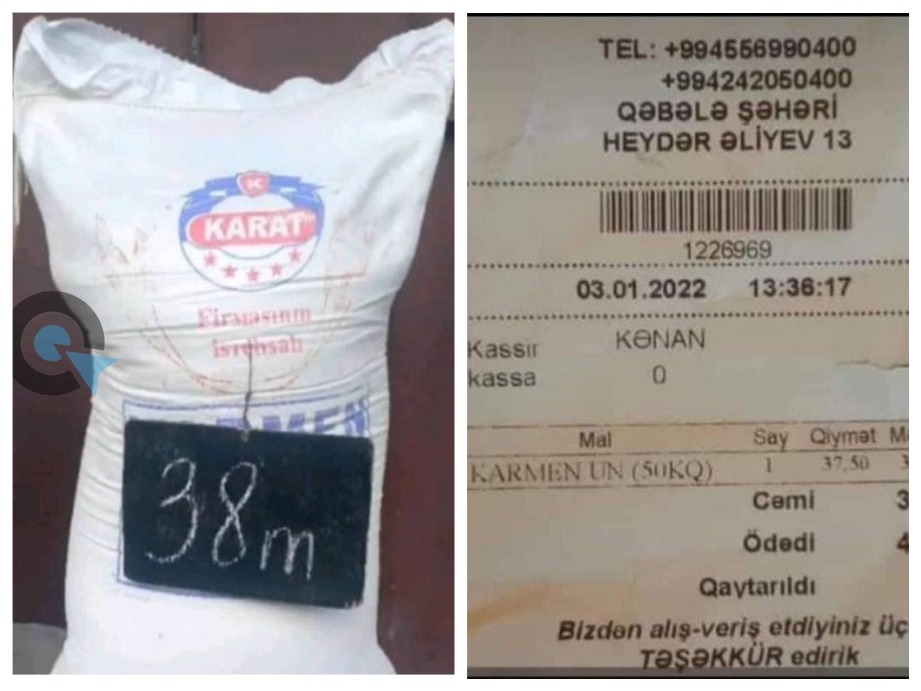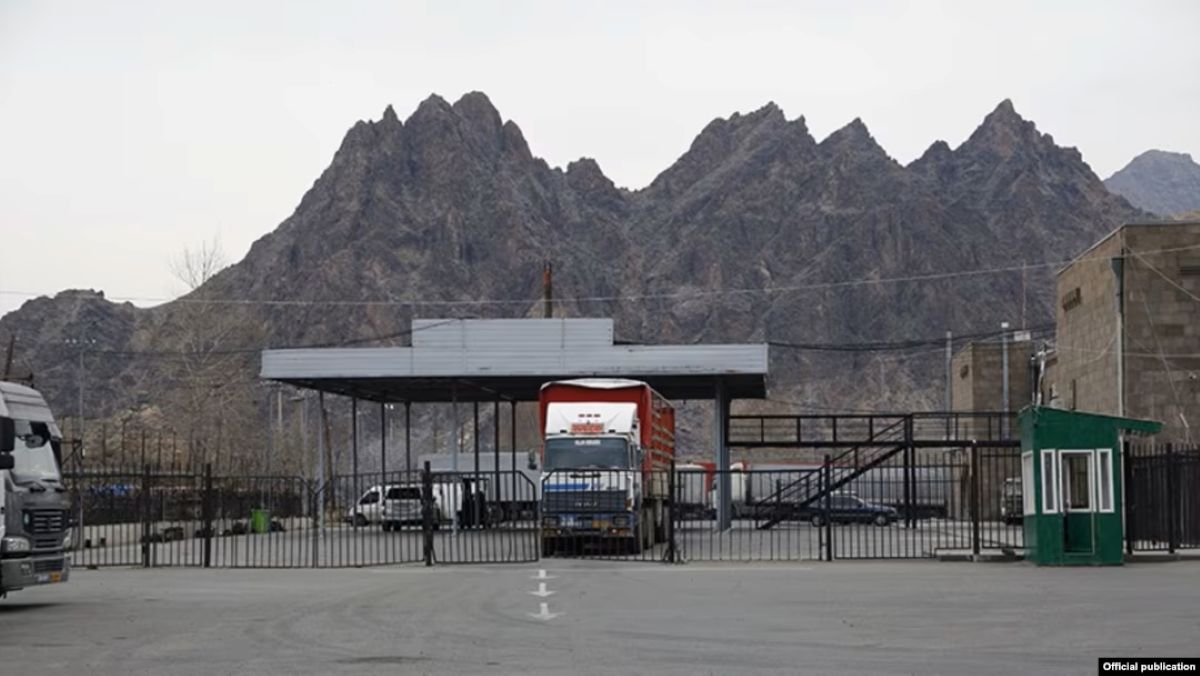Bread price increases by 30% in Azerbaijan
Bread and wheat prices increase by 30% in Azerbaijan
The main event of the first days of the new year in Azerbaijan was the rise in prices for flour and bread. The price of a sack of flour and bread loaf increased by 30%. Manufacturers explain this by the sharp rise in prices for flour all over the world, experts predict a further increase.
- Double-digit inflation instead of double-digit economic growth: Armenia’s economy in 2021
- What caused the collapse of Turkish lira – political or economic reasons?
- Up to one million citizens in Georgia will not be able to gamble, as government introduces new restrictions
On January 3, information about a rise in the price of flour appeared in the Azerbaijani segment of social media. Thus, the price of a 50 kg sack of flour increased by 10 manats [$ 5.88]. By the evening, users began to publish photos of flour with a new price tag and a purchase receipt. A bag of flour that cost 28 manats [$ 16.47] before was now being sold for 38 manats [$ 22.35].
The next day, on January 4, the price of bread went up as well. The cheapest (“round”) bread weighing 650 grams was sold for 0.65 manats [$ 0.38]. Before that, it cost 0.5 manat [$ 0.29].
A message from bread producers
“As you know, the ongoing global negative processes, uncertainty, pressure on production and the supply chain, as well as the Covid-19 pandemic has led to a sharp increase in price for products all over the world. These processes have not bypassed the price of grain either”, says a joint address of flour and bread producers to the Azerbaijani people.
According to them, food wheat is imported to Azerbaijan mainly from Russia, and the rise in prices in this country leads to an inevitable rise in the price of flour. “In December 2021, the import of 1 ton of wheat from Russia cost 58.7% more in comparison with the same period in 2019. And the growth in comparison with December 2020 amounted to 33.1%”, said the Azerbaijani producers of flour and bread.
“According to our calculations, the price for a bag of wheat flour may rise to 36 manats [$ 21.17], and traditional round bread will rise in price by 10-15 qepiks [$ 0.06 – 0.09]”, the producers explained.

State tried to prevent the rise in prices
Over the past two years, the state has tried to prevent the rise in prices for bread in Azerbaijan. For this, a number of steps have been taken.
Thus, starting in March 2020, the government allocated 6.2 million manat [$ 3.6 million] in the form of a subsidy to wheat importers. In addition, wheat suppliers to the country received 58.2 million manat [$ 34.2 million] in soft loans. The purpose of this aid was to create an adequate supply of wheat in Azerbaijan.
In 2021, the period of subsidies for wheat importers was extended from 12 to 24 months. The production and sale of flour was exempt from VAT until January 1, 2024. Flour exports were taxed with a customs duty of US $ 200 per ton. For comparison, the same volume in Russia is subject to a US $ 100 levy.
But these measures were not enough.
Expert opinion
According to Natiq Jafarli, an economist and one of the leaders of the opposition Republican Alternative party, wheat and grain prices have grown significantly throughout the world. In the last month alone, a ton of wheat on the world market has risen in price to $ 340 per ton.
“Is it difficult to produce wheat ourselves? No, it’s not difficult, people have been doing this for 10,000 years.
How much wheat does Azerbaijan need, and how much of this need is food wheat? The country consumes about 4 million tons of grain per year, including 1.8 million tons of edible wheat.
And how much wheat is produced in the country and is Azerbaijan able to provide for itself? In recent years, wheat production in Azerbaijan amounted to 1.85 million tons, but this is not edible wheat, it is of poor quality, it is mainly used as food for animals. A maximum of 25-30% of this volume falls on wheat suitable for flour production. The rest of the volume is imported, mainly from Russia.
Well, since the times of Mesopotamia for thousands of years, people have mastered the production of wheat, why can’t we, in the 21st century, do this too? Because there is no science, no selection, no water for irrigating land, the policy of providing raw materials and fertilizers does not work, the system of subsidies does not work, and most importantly, the attitude towards investors needs to be improved, as investors themselves do not really trust our government.
Now let’s look at the volume of consumption. We have a lot of poor people, and people are forced to eat more bread, our cuisine is also heavily based on a large consumption of flour dishes.
The smallest volume of bread consumption in the world is in the Scandinavian countries – 32-34 kilograms per year. In Russia this figure is 97, in Bulgaria – 96, in France and Germany – 54, in Italy – 52 kilograms. In Turkey, it is 124 kilograms of bread per capita per year.
In 2020, 1,294,604 tons of fresh bread were produced in Azerbaijan. Of this volume, 1,280,556 tons were consumed in the form of food. This is 128.4 kilograms of bread per capita. We must reconsider this issue, reduce the consumption of bread, but this issue cannot solved that easily – the amount of bread consumption depends directly on the welfare of families.
Thus, it is not hard to guess that the rise in bread prices will have a serious impact on the spending of citizens. And the main reason is not the growth of prices of wheat worldwide, but the fact that we ourselves cannot provide ourselves with this strategic commodity”, Jafarli wrote on his Facebook page.


















